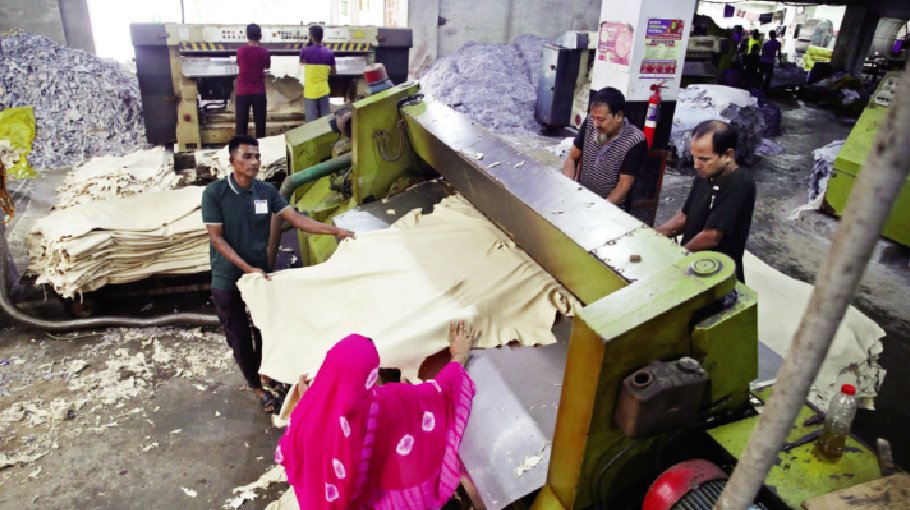Tanners fear heavy losses for 3 teasers combined

Tannery owners at Tannery Industrial Estate in Savar expect a collection of an estimated 1.5 million pieces raw hides on the occasion of Eid-ul-Azha this year. But they fear substantial losses due to frequent power outages, gas crisis and salt price hike.
Like every year, tannery factories are facing this year too severe load-shedding, shortage of gas supply and salt price hike. These three factors combined together adds to their worries about collection and processing of the huge quantity of raw hides, industry insiders said.
Besides, low capacity of CETP (Central Waste Treatment Plant) is affecting the operation of the tannery factories at the Tannery Industrial Estate, they added.
Some tanners, while talking to the Bangladesh Post, said that the government should take immediate measures to ensure uninterrupted power supply to their factories and reduce hike in salt price save this industry.
Salt, a major substance for preservation of raw hide, is now selling at Tk 1,150 per sack. Salt price has increased by Tk 4 per kg in the last month, they said.
Md Shakhawat Ullah, senior vice-chairman of Bangladesh Tanners Association (BTA), said, “Salt price has increased sharply in the last one month. There is no alternative to salt for preserving raw hides.”
Project Director of Anjuman Trading Corporation Limited Md. Zahir Uddin Sarkar said, “We need uninterrupted power supply for this industry. If loadshedding presists even for a short time, we will incur a heavy loss.”
An official of Bangladesh Small and Cottage Industries Corporation(BSCIC) said all preparations have been taken to help collect raw hides during Eid al-Azha.
“Around 50 volunteers will work at the Tannery Industrial Estate from Eid day,” he added.
It is learnt from our Savar correspondent that all kinds of chemical, including salt, have been stored in the tanneries to preserve raw hides and the owners have completed the process of hiring additional workers in their factories. Each floor of the tannery factories has been kept empty to store new raw hides.
Initiatives have been taken to enhance the capacity of the CETP at BSCIC Leather Industrial Estate. However, the Department of Environment says although pre-treatment is mandatory at every tannery in the industrial estate, many tanneries are flouting the rules.
The authorities concerned have recently made it mandatory for the owners to set up a chrome recovery plant in every tannery with conditions, but there is no significant progress in its implementation. Currently, the CETP at the leather industrial estate has the capacity to treat 25,000 to 30,000 cubic meters of liquid waste.
The quantity of waste increases to 45,000 cubic meters during Eid-ul-Azha as half of the raw hides collected by tanners throughout the year comes during the Eid. More than one crore sacrificial animals were slaughtered last year.
Industries Adviser Adilur Rahman Khan recently said it is important to ensure international certifications to get export prices of raw hide. The government is working to devise a supportive policy environment, but tannery owners must come forward to set up individual Effluent Treatment Plants (ETPs) alongside the CETP at Savar to comply with environmental standards.
Meanwhile, BSCIC officials said that they had talked to the rural power authorities concerned and urged them to ensure uninterrupted power supply to the industrial estate for three consecutive months after Eid-ul-Azha.
In addition, BSCIC will also work with the district administration to ensure unhindered entry of hides into the industrial estate.
Savar BSCIC Leather Industry Estate Executive Engineer Md. Mahfuzur Rahman Rizwan told the Bangladesh Post, “Necessary preparations have also been taken to tackle the growing pressure at the central wastewater treatment plant in the leather industry estate.
“As an additional preparation, we are recruiting 50 volunteers this year. The district administration and police have assured us that they will provide us with all necessary support in this regard.”



